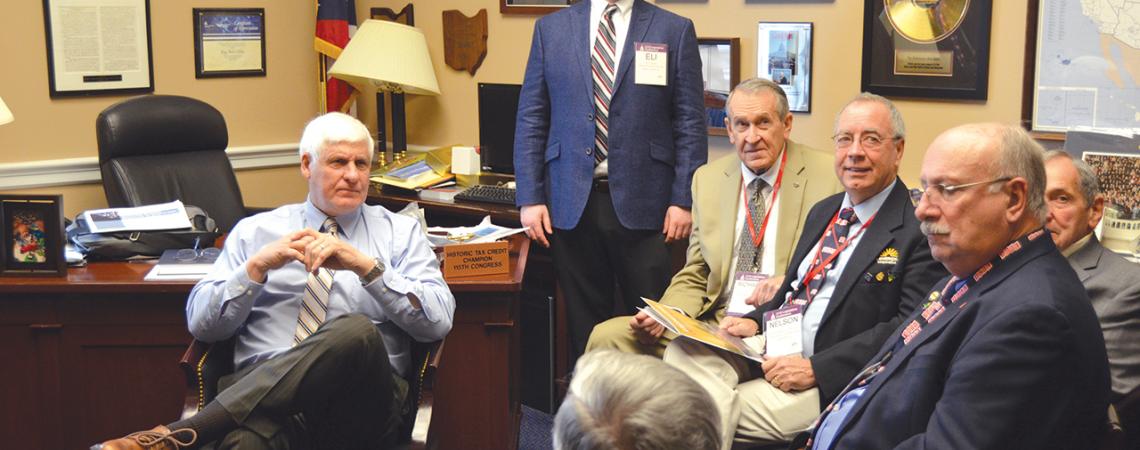Ohio co-op leaders met with U.S. Rep Bob Gibbs and other legislators during the annual NRECA Legislative Conference.
As you might imagine, electric cooperatives have a great story to tell.
We talk about our history, about rural neighbors who banded together to bring electricity to their homes and farms when no one else would.
We talk about the present, about the vital service we provide, and about our involvement in our communities — locally, nationally, and even internationally.
We talk about the future — about the challenges we see ahead; about how the cooperative business model helps us to make sound decisions; about how to keep the electricity co-ops provide affordable and reliable; about how we remain environmentally responsible; and about how we ensure that our employees return home safely to their families each and every day.
Talk about compelling. It feels like we should be shouting from the mountaintops. Fortunately, there are better ways to get those stories out. Ohio Cooperative Living, of course, is a great way to share co-op stories with our members.
Sometimes, however, our story requires a broader audience, or maybe we need to get into some nitty-gritty details — and that’s when we really get to stretch our voices.
For example, co-ops are active at statehouses around the country, and each spring, many of your co-op’s leaders head to Washington, D.C. We need to be sure that elected officials hear our stories firsthand, and that our concerns are considered when policies that affect your co-op are enacted. Legislative conferences are a necessary tool to make sure our voices get heard — and acted upon.
We share a heritage with RFD-TV network (profiled this month on page 4). The name “RFD-TV” is a reference to “Rural Free Delivery,” the United States Postal Service’s system of delivering mail directly to rural patrons. Before RFD, farmers had a tough time getting mail delivery — sound familiar?
Cooperatives were among the early investors that helped RFD-TV get off the ground. The network understands that co-op news is likely to affect a large portion of its audience, and they provide another platform to tell our story.
Our stories are good ones, and they’re fun to tell — and using our voice is important to our future.









